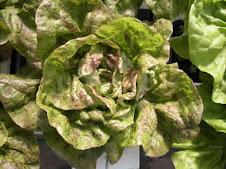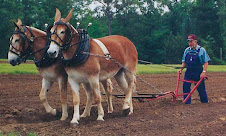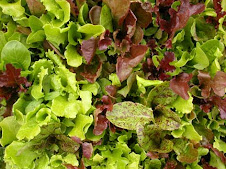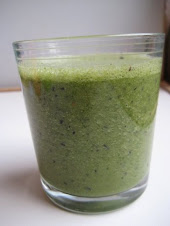Our phone has been ringing off the hook since Monday. The cats are rattled and the kids are annoyed, but I am overjoyed. On Monday, a local TV station came out to Wolf Gulch to do a story on the fact that the Siskiyou Coop CSA will be accepting food stamps in two weeks. They broadcast the story twice that night and again the next morning. Since then, I have spent the greater part of every day on the phone with people interested in signing up.
This all started back in April when my friend Tracy Harding, who manages the Ashland Saturday market and is coordinating an effort to get local produce into school lunches, forwarded me an email about CSAs taking food stamps. It took me about a week to actually look into the prospect, and what I found was daunting. For one thing, the USDA requires a lot of paperwork, and since we are a cooperative, the paperwork was extra challenging. After getting photocopies of all nine Siskiyou Coop farmers drivers licenses and tax id numbers, I found even more difficult coop standards (I honestly can't remember what they were right now), so I tried another tactic. I applied to receive food stamps under Wolf Gulch Farm, instead of the coop, which immediately reduced the paperwork by at least nine-fold.
The next major hurdle came on June 4th, when we got a surprise inspection from a USDA representative. The rep was incredibly nice; he kept commenting on the beauty of the drive out here. Most people who come out here comment on the length and windiness of the drive, so I was especially appreciative of his enthusiasm. I was slightly amused when he walked down into our fields, looked all around and asked "where is the store?" Obviously, we don't fit the standard profile of a food stamp machine applicant. He needed to document our "inventory", so he took some photos of lettuce and carrots growing in the field, some apple trees, and some boxes of softening potatoes and apples from last fall (for home consumption only- I promise!) He seemed very jolly and pleased with his photos. However, when I spoke with the contact woman the next week, she was not pleased and told me there was no way she could license me with no inventory to speak of. I felt dejected, but still slightly amused at our attempt to resemble a "store". In the end, the contact woman worked with me and agreed to license us after I sent her pictures of our first CSA boxes.
The final step is getting the EBT Debit card machine, which will enable us to charge the food stamp recipients. More paperwork and few days wait, but it's on the way, and we'll be ready to use it in a week or so.
All of these headaches are forgotten as I speak to nursing mothers who don't want pesticides in their breastmilk, or elderly people who can't afford quality produce. I have also been deeply touched at the number of our regular CSA members who offered to lend a hand in distributing produce to disabled or elderly people who can't drive. I'll keep you updated on how it all works...
Thursday, June 25, 2009
Wednesday, June 17, 2009
Quality Control in the Coop
Growing high quality, organic produce has become easier as people have gained a greater understanding of how to manage pests and disease, and farmers have adopted good harvest and post-harvest handling practices. Without the quick fix of most herbicides and insecticides, organic farmers must rely on a whole range of pest management practices. These include mechanical control of weeds, crop rotation, biological controls (introducing one organism to control another organism), covering plants at risk of insect predation, keeping plants healthy with appropriate fertilization and irrigation, and much more. Farmers now know the best times of day to harvest each crop, and the optimal temperatures and humidity levels at which to store harvested produce. Even with all this valuable information, organic farmers are constantly challenged by both new and familiar insects, and plant disease. Often, farmers will have to till in or compost crops that have too much insect damage to salvage for market. This can be one of the most difficult aspects of farming. Fortunately, most small, organic farmers are highly diversified- growing up to 50 different crops, so some crop loss is expected and can be tolerated by the whole operation.
In the midst of these challenges, farmers have to consider what their quality standards are. How many holes can a leaf of chard have? How uniform do your bunches of radishes need to be? Retail and wholesale buyers and chefs have very high standards for quality. Customers who buy at growers markets also tend to pick out the best-looking produce in a booth.
Quality control has been the single greatest challenge of running a cooperative CSA. We all want the boxes to look good and our members to be satisfied, but there have been different ideas of what quality looks like. A year and a half ago, the coop farmers set out to create quality standards. We sat down with a list of the fruits and vegetables we offer and came up with specifications for what was acceptable to put in the CSA boxes. Some farmers wanted the standards to be more lenient- suggesting that people who join a CSA are accepting part of the risk in the farms, and should understand a certain amount of crop degradation. In the end, we agreed to adopt very high quality standards, based on the rationale that CSA members are paying for high quality produce and are entrusting us to put the best produce in their boxes.
We continue to try to deliver high quality produce to our members every week, but our system is not perfect.
Please let us know if any item you receive seems at all questionable. We rely on your feedback to make our CSA topnotch. We will also gladly replace any item in your box the following week.
Now, back to those carrots...
In the midst of these challenges, farmers have to consider what their quality standards are. How many holes can a leaf of chard have? How uniform do your bunches of radishes need to be? Retail and wholesale buyers and chefs have very high standards for quality. Customers who buy at growers markets also tend to pick out the best-looking produce in a booth.
Quality control has been the single greatest challenge of running a cooperative CSA. We all want the boxes to look good and our members to be satisfied, but there have been different ideas of what quality looks like. A year and a half ago, the coop farmers set out to create quality standards. We sat down with a list of the fruits and vegetables we offer and came up with specifications for what was acceptable to put in the CSA boxes. Some farmers wanted the standards to be more lenient- suggesting that people who join a CSA are accepting part of the risk in the farms, and should understand a certain amount of crop degradation. In the end, we agreed to adopt very high quality standards, based on the rationale that CSA members are paying for high quality produce and are entrusting us to put the best produce in their boxes.
We continue to try to deliver high quality produce to our members every week, but our system is not perfect.
Please let us know if any item you receive seems at all questionable. We rely on your feedback to make our CSA topnotch. We will also gladly replace any item in your box the following week.
Now, back to those carrots...
Thursday, June 11, 2009
First Delivery Day!
Tom and I are up early, checking and rechecking our lists for the first delivery day, and looking out on some thick Applegate fog.
This time of year always comes with a certain amount of stress, as there are a lot of details to keep track of in a cooperative CSA with multiple extra items in addition to dozens of field crops. But there is also something deeply satisfying about distributing our produce and other locally grown products all around the Rogue Valley- into a hundred different households.
The growing season so far this spring has been pretty good. As you probably noticed, the weather was all over the place- with perfect 70 degree days; cold, wet spells; thunderstorms with pelting rain; and a week of 90 degrees. At Wolf Gulch, we struggled to keep up with the weeds last week, as the beds were too wet to hoe in, but the growing conditions were ideal. Some stands of pigweed began to dwarf our lettuce crop and crowd around the young onions and leeks. On Monday when the fields were dry enough to cultivate in, our friends at Boones Farm sent over a crew of five to tackle the weeds. We made a lot progress and are back on track. Well, as much to be expected this time of year.
Josh and Melissa at Barking Moon Farm in the Applegate had a dramatic weather episode last week: On Tuesday, their little valley up Thompson Creek Road was hit by a hail storm. They lost about 40% of their crops- mostly salad greens and spinach. Melissa described the fields as looking like a blender had run through them. Luckily, the greens are growing quickly this time of year, so they expect to be back in full production in a couple of weeks. Still, they lost a lot- in revenue, time and heartache, and it's a good reminder to all of us of the inherent risks in farming. If you attend the growers markets, go visit Josh and Melissa, buy some of their stuff, and thank them for farming.
Members new and old: please stay in touch with us through the season. We depend on feedback and will do our best to meet your needs. If you are overwhelmed by the number of greens in your box this week, try out some of the recipes. When in doubt, saute the bunch of kale or bag of spinach, and you'll probably be amazed at how much the volume reduces.
Thanks of being part of our Community Supported Agriculture Program
This time of year always comes with a certain amount of stress, as there are a lot of details to keep track of in a cooperative CSA with multiple extra items in addition to dozens of field crops. But there is also something deeply satisfying about distributing our produce and other locally grown products all around the Rogue Valley- into a hundred different households.
The growing season so far this spring has been pretty good. As you probably noticed, the weather was all over the place- with perfect 70 degree days; cold, wet spells; thunderstorms with pelting rain; and a week of 90 degrees. At Wolf Gulch, we struggled to keep up with the weeds last week, as the beds were too wet to hoe in, but the growing conditions were ideal. Some stands of pigweed began to dwarf our lettuce crop and crowd around the young onions and leeks. On Monday when the fields were dry enough to cultivate in, our friends at Boones Farm sent over a crew of five to tackle the weeds. We made a lot progress and are back on track. Well, as much to be expected this time of year.
Josh and Melissa at Barking Moon Farm in the Applegate had a dramatic weather episode last week: On Tuesday, their little valley up Thompson Creek Road was hit by a hail storm. They lost about 40% of their crops- mostly salad greens and spinach. Melissa described the fields as looking like a blender had run through them. Luckily, the greens are growing quickly this time of year, so they expect to be back in full production in a couple of weeks. Still, they lost a lot- in revenue, time and heartache, and it's a good reminder to all of us of the inherent risks in farming. If you attend the growers markets, go visit Josh and Melissa, buy some of their stuff, and thank them for farming.
Members new and old: please stay in touch with us through the season. We depend on feedback and will do our best to meet your needs. If you are overwhelmed by the number of greens in your box this week, try out some of the recipes. When in doubt, saute the bunch of kale or bag of spinach, and you'll probably be amazed at how much the volume reduces.
Thanks of being part of our Community Supported Agriculture Program
Wednesday, June 3, 2009
Now offering: Locally roasted Cold Pressed Coffee!
This blog post was written by Asher Yaron, who is currently offering locally roasted coffee through our CSA program.
Cold Pressed Coffee - A Healthy Elixir!
Recently I was introduced to a process of making coffee called, cold pressed. I was so im-pressed by the
delicious flavor and smoothness that I have made it a significant part of my business. Cold pressed
coffee stays fresh for weeks in the refrigerator and you can't beat the convenience. Just take it out of the fridge
and either heat it up or add ice. No equipment necessary!
I am now making and delivering cold pressed coffee in 1 qt. containers for $10 each. Cold pressed coffee is a concentrate and is usually diluted with water (1 part cold pressed to 3-5 parts water). It is ideal for entertaining and perfect for iced blended coffee drinks on a hot summer day.
Like many other cold pressed food processes it is a healthier option. Cold pressed coffee contains 60% less acid and 50% less caffeine. It is very smooth with no bitter aftertaste. If you are a coffee lover and have never tried it, I highly recommend it!
Here is how I create this delicious elixir:
1. The first step is to obtain freshly roasted coffee beans (I know where you can get some!).
2. I grind the beans on a coarse setting (I use 5 lbs. of beans for each batch and 3 gallons of water).
3. I then place the coarsely ground coffee in a large container that has a super-sized coffee filter.
4. Fresh well water is then sprinkled on the grounds (use 1/2 - 3/4 of a gallon of water for each pound of coffee).
5. Allow the water and grounds to soak for 24 hours.
6. Drain the liquid and keep stored in the refrigerator.
Give it a try.....and remember, fresh roasted always tastes better!
Cold Pressed Coffee - A Healthy Elixir!
Recently I was introduced to a process of making coffee called, cold pressed. I was so im-pressed by the
delicious flavor and smoothness that I have made it a significant part of my business. Cold pressed
coffee stays fresh for weeks in the refrigerator and you can't beat the convenience. Just take it out of the fridge
and either heat it up or add ice. No equipment necessary!
I am now making and delivering cold pressed coffee in 1 qt. containers for $10 each. Cold pressed coffee is a concentrate and is usually diluted with water (1 part cold pressed to 3-5 parts water). It is ideal for entertaining and perfect for iced blended coffee drinks on a hot summer day.
Like many other cold pressed food processes it is a healthier option. Cold pressed coffee contains 60% less acid and 50% less caffeine. It is very smooth with no bitter aftertaste. If you are a coffee lover and have never tried it, I highly recommend it!
Here is how I create this delicious elixir:
1. The first step is to obtain freshly roasted coffee beans (I know where you can get some!).
2. I grind the beans on a coarse setting (I use 5 lbs. of beans for each batch and 3 gallons of water).
3. I then place the coarsely ground coffee in a large container that has a super-sized coffee filter.
4. Fresh well water is then sprinkled on the grounds (use 1/2 - 3/4 of a gallon of water for each pound of coffee).
5. Allow the water and grounds to soak for 24 hours.
6. Drain the liquid and keep stored in the refrigerator.
Give it a try.....and remember, fresh roasted always tastes better!
Subscribe to:
Posts (Atom)






